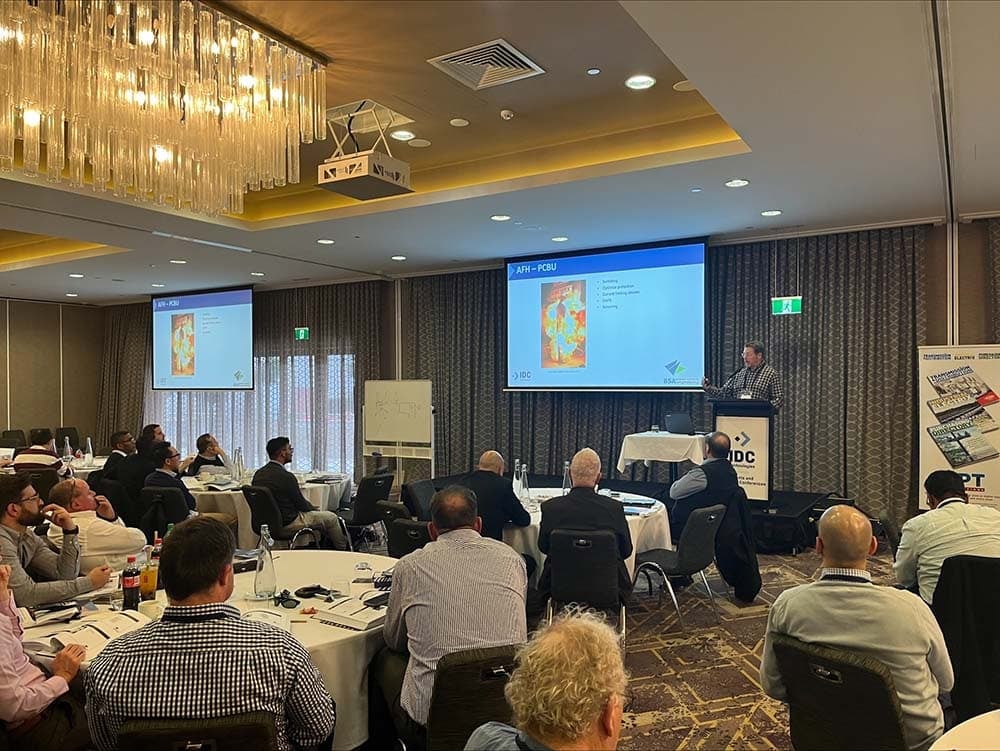Engineers have a lot going for them in terms of career prospects.
According to the 2020 World Economic Forum’s (WEF) Jobs of Tomorrow: Mapping Opportunity in the New Economy, engineering skills are on their list of the highest-demand skills that are essential to break into, what WEF deems, emerging professional clusters.
It is specifically the technical and cross-functional skills that graduate engineers have that make them so valuable. While studying, students will likely pick up some of the five most distinct in-demand skills the WEF identified. These skills are;
- Business skills
- Specialized industry skills
- General and soft skill
- Tech baseline skills
- Tech disruptive skills
WEF also identified skills in professional clusters that are important and will secure employment. These skills are distinctively engineering-centric with data and artificial intelligence and engineering, cloud computing, and specialized industry skills ranking high.
This is good news, but more diversification is needed when it comes to future-proofing an engineering career. What these skills don’t consider are aspects like hitting the glass roof while employed, cultivating soft skills, your peer network, and ultimately how engineers will survive the fourth industrial revolution.

Think About Where You Want To Work
You’ve probably heard about a five-year plan before, and that’s a good thing. When planning your career, you should take a spectrum of factors into account, and country forecasts are a great tool.
The Economist Intelligence Unit releases annual reports which give detailed accounts of different countries, their economy and living standards. While engineering is seen as sought after globally, it won’t hurt to know what you can look forward to if given the chance to move to a new geographical area.
Country forecasts, for the individual user, is a useful planning tool that helps in anticipating future opportunities, identifying risks in geographical areas, understanding local business environment rankings, and predicting expected years for certain outsets to take place so keen engineers can compare investments.
Especially in the engineering strategy world, the fact that developing countries often have forecasts up to 2050, allows the development of long-term strategies for individual countries. At the end of the day, the detailed reports allow new engineers the opportunity to identify the best places to conduct business or grow a career.
There Are Some Statistics Engineers Can Use
The research paper Statistical laws for career longevity is an amazing reference tool that uses data to determine a career path – and it can quite literally figure out your career.
The Stochastic Model (used in finance) can be used in careers by adding random progress within a career and random termination of set careers. Using the model, it becomes solvable in predicting the probability density function of career longevity.
For the model to determine longevity, every employee will begin a career with 0 credibilities and has to go through a development curve.
At each position X in a career, there would be an opportunity for employees to progress or stagnate. New opportunities correspond with career position advancement from position X.
The model then accounts for every day worked in a particular career. Optimally individuals should make progress at an equal rate as time worked, when one of these doesn’t grow at the same time there is a bigger chance of career stagnancy or even termination.
While human data is not part of the model, it can be applied. As the author states, when gathering data on the model it became clear that it could show career trajectory. Because data recording of social phenomena is now widely available theoretical models of social dynamics with statistical physics can measure what careers longevity should look like, and what would be considered the “right” time to receive promotions or advance careers.
It could estimate when a career will plateau or simply if an employee is on track within a company.
Add soft skills to your resume
Theory might not be every engineers’ favorite thing, but it is becoming more relevant than ever for engineers to have soft skills. These skills are career-building since they add larger scope to individuals.
A 2018 research paper, Strengthening critical thinking in students of engineering careers, gives a good summary of why soft skills are valuable and relates it to future-proofing a career by having better command of persuasive language.
The study found that the vocabulary of respondent engineering students was 76% and that active language was then only at 24%. Active language creates engagement, which is necessary for network-building, trust and also creating a cohesive work environment.
The research showed that once engineering students stopped including certain aspects of critical reading and writing into their lives they faced lexical knowledge loss, part of the identified skills WEF identified as critical.
Critical thinking was number two on the WEF list for core occupational skills in 2020.
You Matter as an Individual
A bright smile and shining personality – that’s something a robot can’t take away from human employees, and it matters.
The demand for capabilities relating to technology and its evolvement in preparation and even within the Fourth Industrial Revolution has seen the globalization of markets, productivity growth, sector reforms relating to output demands, and a drive in international competition according to a Malaysian study Hybrid Capabilities and Industry 4.0 Job Demands in Recruiting Malaysian Graduates.
As technology is changing Malaysian workers’ way of performing their jobs requires them to integrate human-machine interaction. Some of these jobs require simple humanity, like the fact that personality and attitude within the workplace have a lot of value when it’s coupled with diverse skillsets.
The study highlights personal competencies since they are essential to establish if someone is a good fit for a job and will be able to fit into a company’s organizational culture and values.

Always be open to education
Lifelong learning is imperative for an engineer. The Engineering Institute of Technology (EIT) is aware of the constant advancement and rapid automating of industry and is continuously upskilling engineers to meet the requirements of these ongoing developments.
EIT offers engineering programs across a range of disciplines, including civil engineering, data communications, electrical engineering, electronic engineering, industrial automation, mechanical engineering, and engineering management.
We deliver our online and on-campus programs via a unique methodology that makes use of live and interactive webinars, an international pool of expert lecturers, dedicated learning support officers, and state-of-the-art technologies such as hands-on workshops, remote laboratories, and simulation software.
Whether you are studying online or on-campus in Australia, our supportive blended learning model, and small class sizes allow you to advance your technical knowledge and remain engaged in your studies while forming global networks and balancing life and work commitments.
References
World Economic Forum, 2020. Jobs of Tomorrow: Mapping Opportunity in the New Economy. [online] Available at: https://www.weforum.org/reports/jobs-of-tomorrow-mapping-opportunity-in-the-new-economy
Economic Intelligence Unit, 2021. Forecast Summary. [online] Available at: https://country.eiu.com/article.aspx?articleid=171133000 (accessed on 4 October)
Petersen, Alexander & Yang, Jae-Suk & Stanley, H.. (2009). Statistical laws for career longevity.
Caratozzolo, Patricia & Delgado, Álvaro & Hosseini, Samira. (2019). Strengthening critical thinking in engineering students. International Journal on Interactive Design and Manufacturing (IJIDeM). 13. 1-18. 10.1007/s12008-019-00559-6.
Rahmat, Ainol & Adnan, Airil & Marini, Nor. (2021). Hybrid Capabilities and Industry 4.0 Job Demands in Recruiting Malaysian Graduates. International Journal of Research in Business and Social Science (2147-4478). 11. 789–799. 10.6007/IJARBSS/v11-i1/9000.
Green, Miriam & Hertzman, Erik & Banderlipe, Mc Ronald I. (2021). Resilience and Growth: A University’s Response for Future-Proofing Graduates and Careers. 10.1007/978-981-16-0983-1_7.



